On the north side of Flint, Michigan, a collection of jumbo barbecue drums puff smoke in a grass lot next to a vacant gas station. Among the big grills is a folding table under a small canopy, the sum of which makes up World Class Bar-B-Q.
World Class isn't really classifiable—it's not a restaurant or pop-up. It's sort of a street-side, open-air barbecue stand that at first glance might not seem legal, but with the sun shining bright on Saturday afternoon, a crowd is gathered around it.
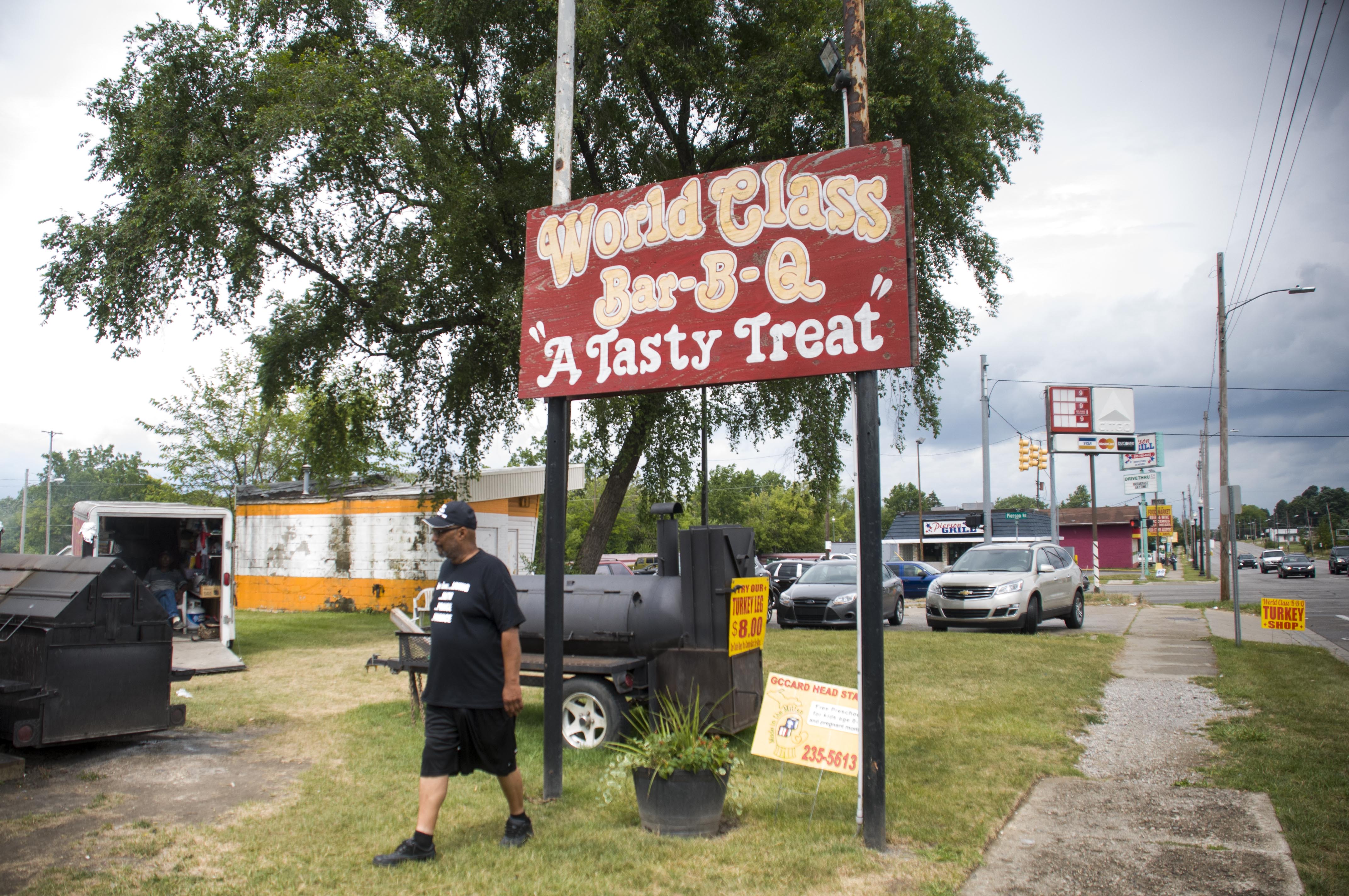
The mood is nearly festive, and a cross section of Flint is standing in line, craning their necks to see what's on the grill, while one of the four women running the show swings up the grill's hood and flips meaty slabs of ribs, giant wings, and club-sized sausages. Music blares from a nearby red-striped Caprice, and another of the World Class women dramatically whacks tips off ribs with a giant cleaver.
The tips are little nubs of cartilage with charred, crispy exteriors concealing super-tender rib meat and pig fat, and gnawing at them gets a little bit primal. World Class does its ribs with a dry rub, but upon request the pitmaster will also ladle on a piquant sauce from a giant pot she keeps on the grill. It's slightly sweet from brown sugar, and there may also be a few lemons, onions, and peppers bobbing in it.
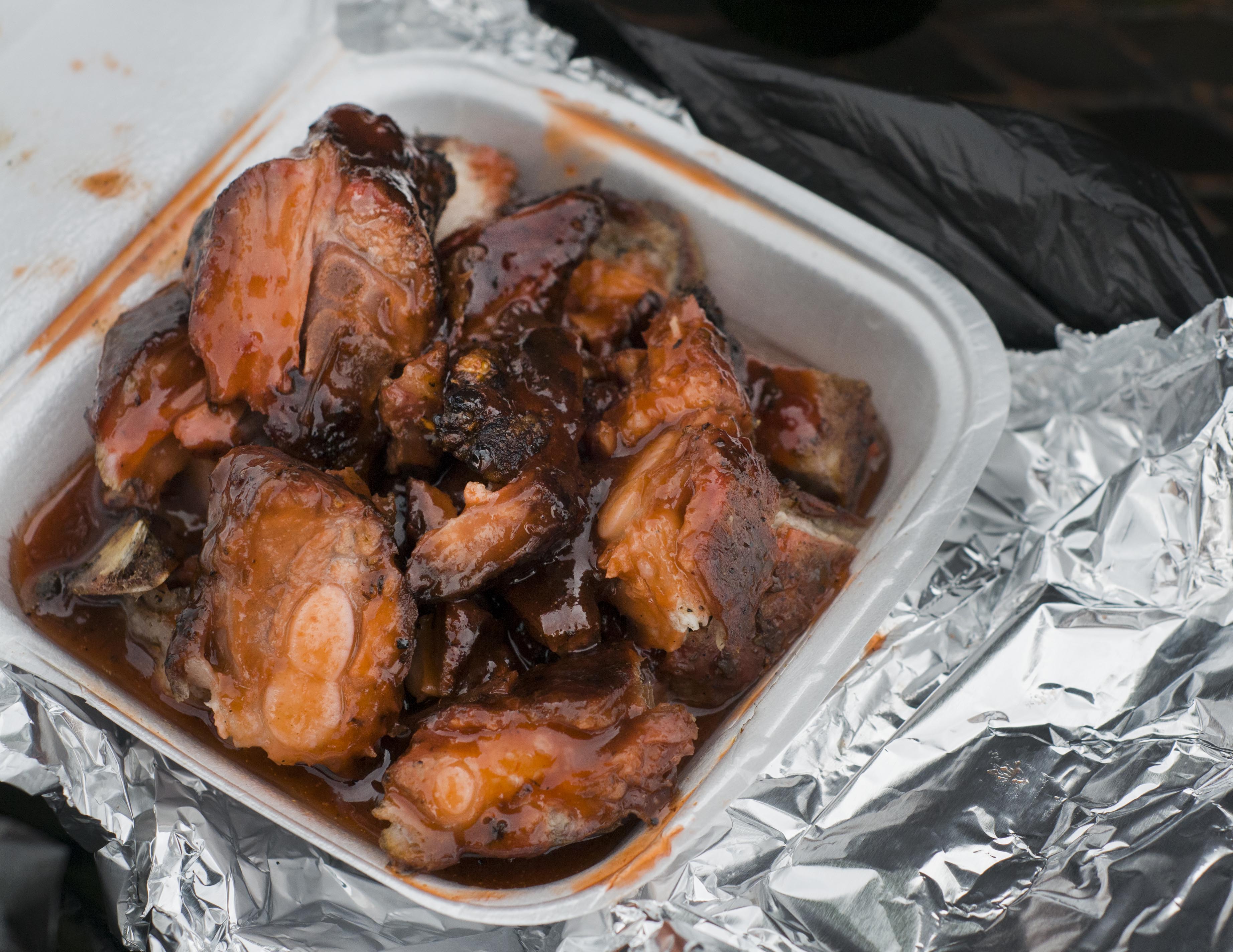
The operation is hardly conventional, but it's representative of the sort of creativity found around Flint's food, as well as the talent in the city's chefs. "It began as a retirement hustle and to give my kid a summer job, but it took off, and they haven't let us shut it down yet," says owner David Burton, who with his wife has been running World Class for 21 years.
In fact, Flint is full of compelling restaurants and chefs, and they're playing a vital role in the city's turnaround. As with World Class, there's often a DIY element, and many are community-focused—they're not just here to cook, but reshape and lift up the struggling city around them while creating new opportunities for others.
"People in Flint are hustlers and survivors, and it's kind of inspiring," says Tony Vu, who runs the Vietnamese noodle bar MaMang. "There's story upon story attached to the food here, and that’s why people want to do it."
And in a broader sense, some say the shared story of Flint is what compels them to look out for one another. Next month, as World Class prepares to shut down for the season (they only operate from late May or early June to September), the Burtons will donate their final week of profits to local soup kitchens. Over the last eight years, they've given $120,000.
As a customer who went by "D" put it: "We love [World Class] because they show Flint some love back."
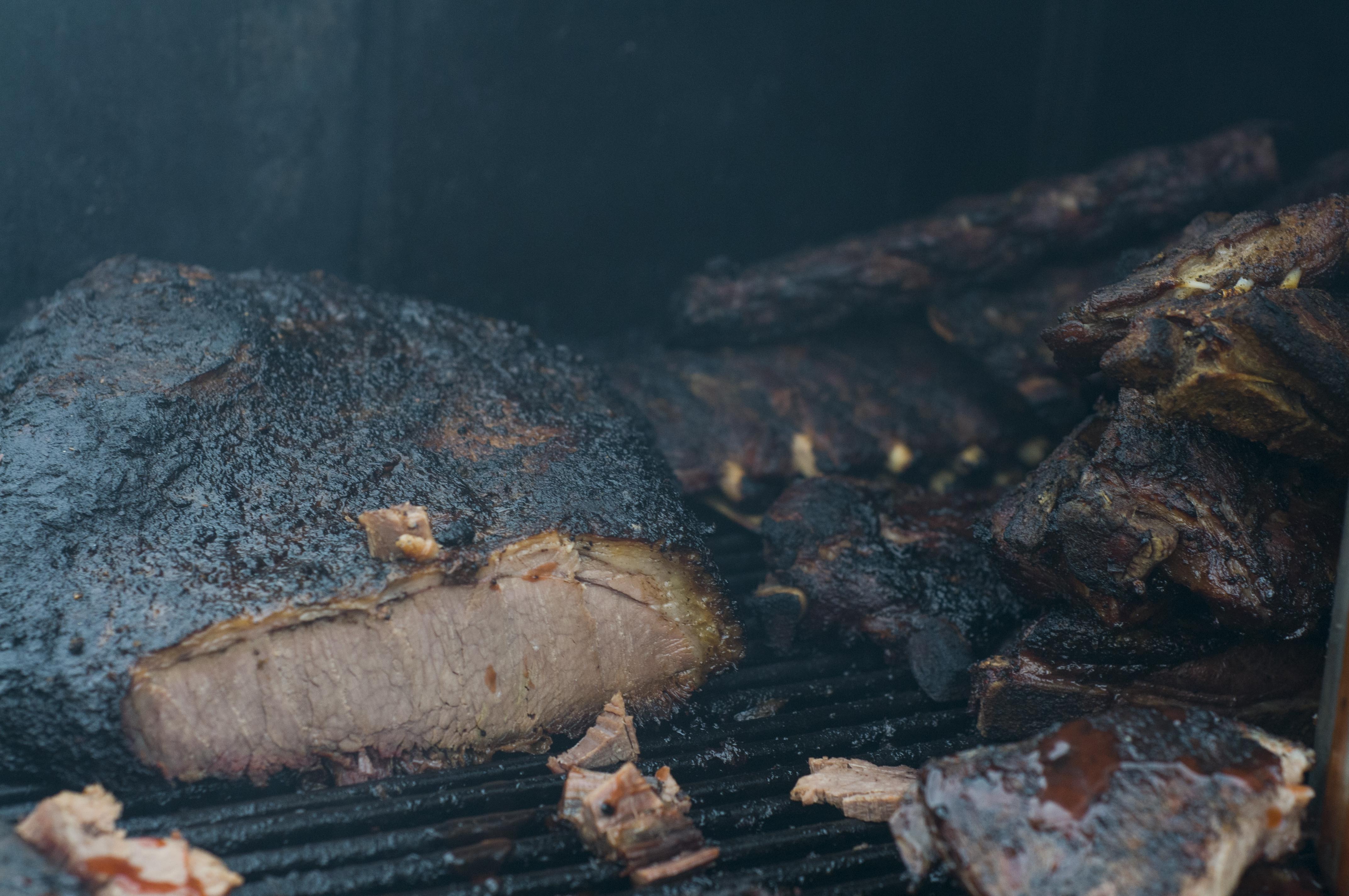
That means something in a place still reeling from repeated, heavy economic blows. Though the worst of the Flint water crisis is past, the issue still simmers. Meanwhile, residents continue wrestling with an encompassing, decades-long economic slide that started as the auto industry largely abandoned the once-mighty region and moved their assembly lines south. 42 percent of Flint lives in poverty according to 2017 census data, and high unemployment, crime, a declining population, and the other usual Rust Belt problems remain a fact of life.
Still, there's optimism in the food industry, and the best of Flint's cuisine is, like the city around it, blue-collar—diners and coney dogs, pho and fried chicken, loaded potatoes and rib tips.
At MaMang, one of Vu's finest plates is a 20-hour smoked brisket pho, and on a recent Saturday his crew prepared an Iberian ham banh mi made with a couple hams Vu smuggled into the country from Barcelona. He stacked it with banana leaf-steamed pork sausage, char siu, pork floss, pate, mayo, pickled carrots, pickled daikon, jalapeno, and cilantro.
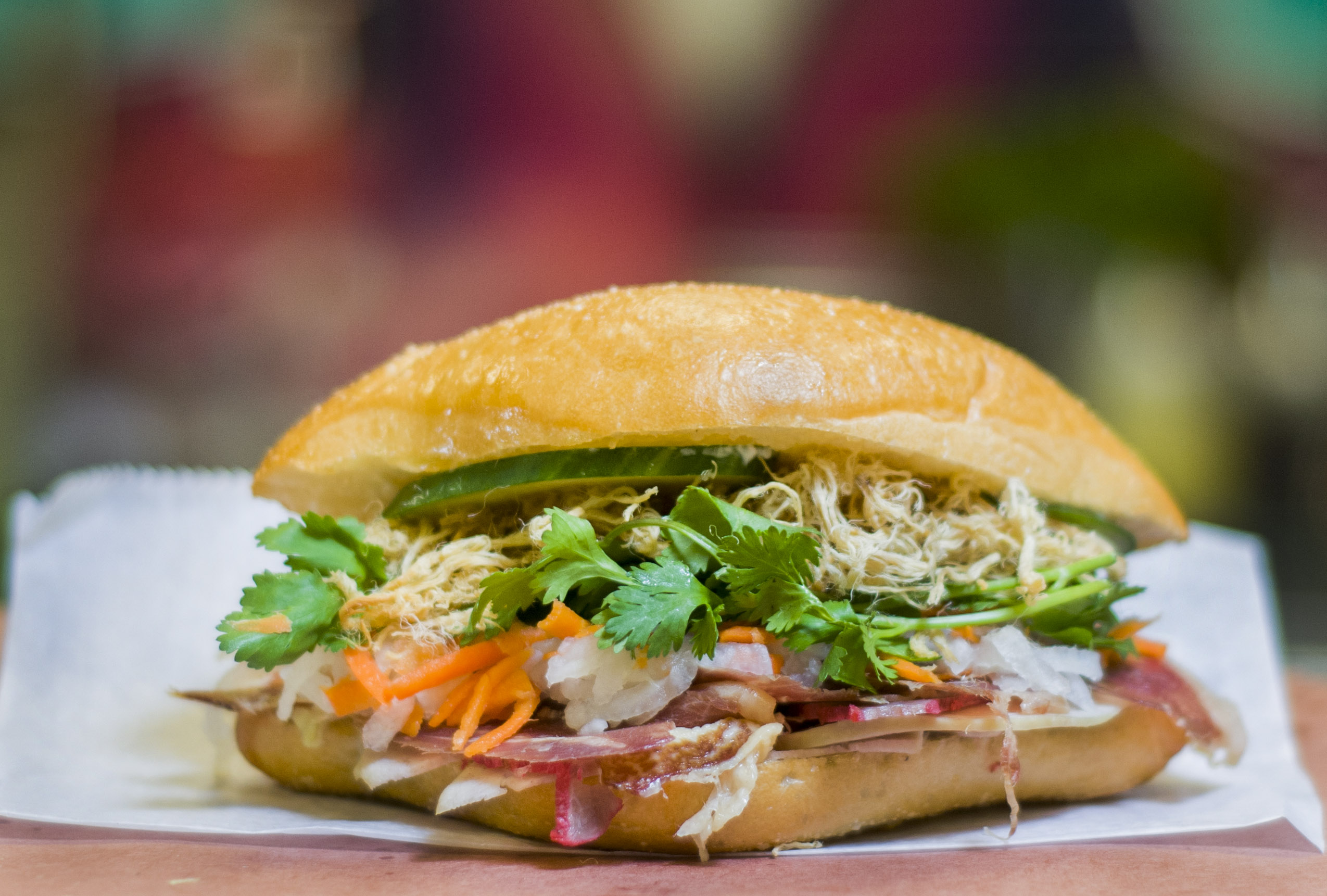
Vu cut his teeth in the kitchen at Mango Mango in Hoi An, Vietnam, but otherwise launched the MaMang food truck in 2014 with no formal training. He later opened the noodle bar at the beautiful, bustling downtown Flint Farmers Market, where he sources about 75 percent of his ingredients. At the market, dozens of local producers, growers, and restaurants sell in a building in which the Flint Journal built a state of the art printing press in 2004, just as the print industry began seriously wilting. The plant was shut down in 2009 and reopened as the Flint Farmer's Market in 2014. About a half-million people annually shop there for everything from organic, locally-grown microgreens to Lebanese bread to the region's best jerky.
On a deeper level, the market's success spurred redevelopment and changed downtown Flint's landscape. Vu calls it the "heartbeat of downtown." "It expanded in its new location at a time when there wasn't much investment downtown," he says. "Then, when the market opened, it sort of broke that mold and it showed that people will come out."
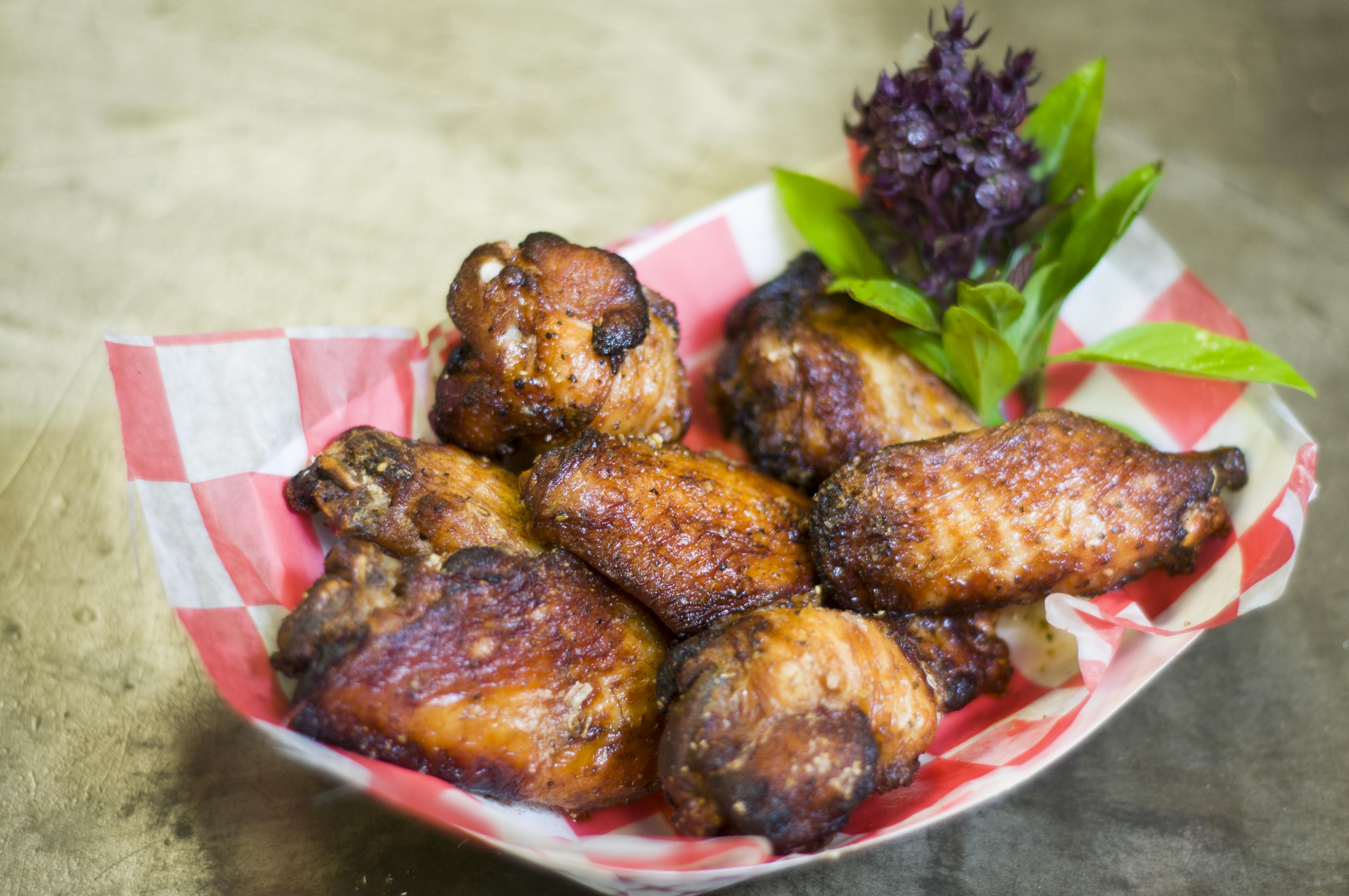
It's also a focal point for nonprofits funding dozens of food programs, including those that help young chefs launch businesses. A chef with no experience building out a kitchen, building a menu, budgeting or promoting will likely sink, so Vu and other experienced chefs started the Flint Social Club, a training and mentorship program for young chefs. Together they prepare pop-ups and dinners for 40 to 80 people, and Vu says it's designed to "hold their feet to the fire and show them what's involved."

Among those benefiting from the city's new resources is Princess Greene, who is on a tear with her recently-established Gumbo Trap pop-up, and is considering converting a vacant KFC in her neighborhood. She started making gumbo because her mom's version was full of slimy okra and, of all things, ham. "I was like, 'no way!' So I decided to do it my way."
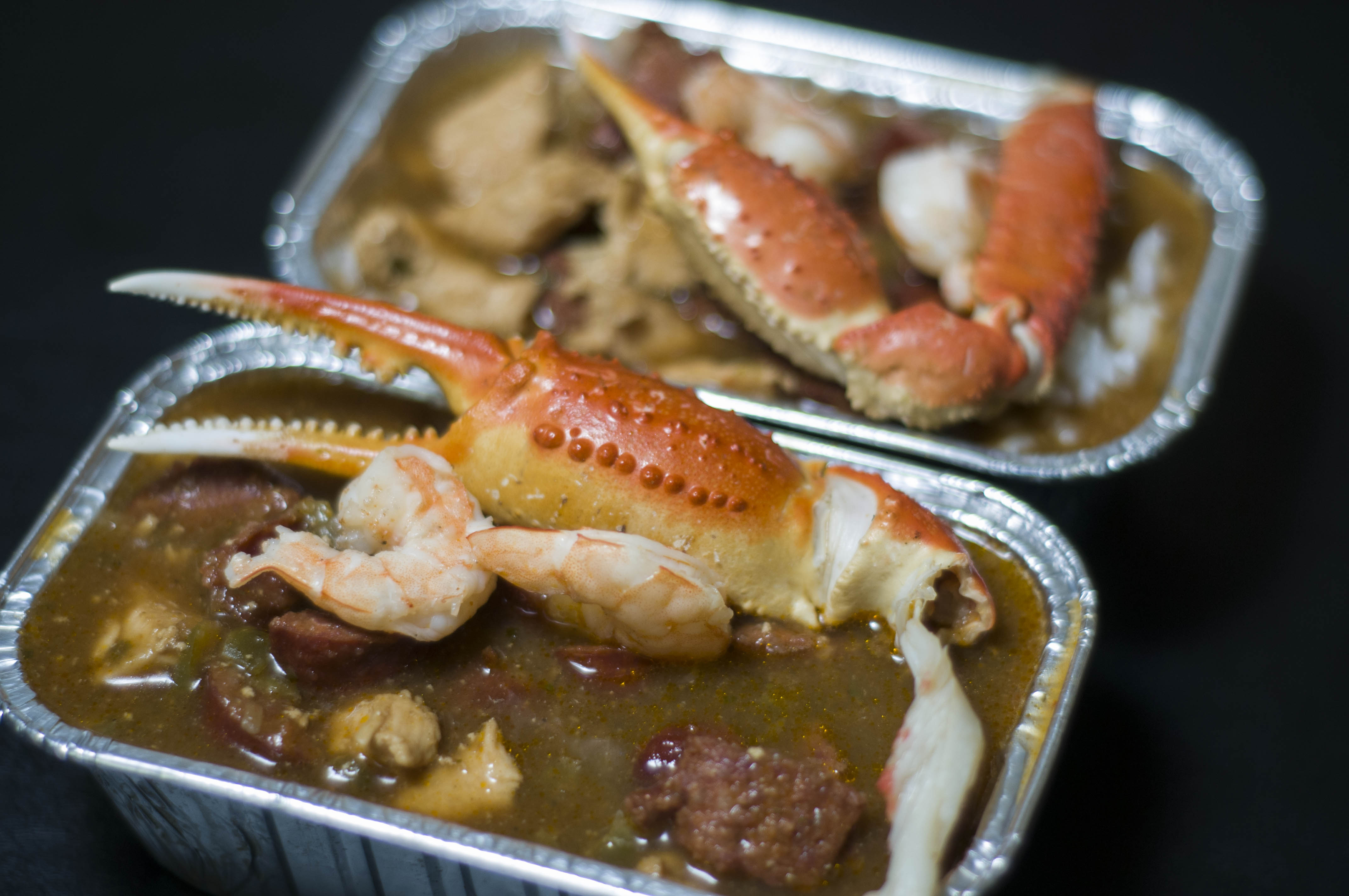
Greene's gumbo is packed full of shrimp, crab legs, spicy beef sausage, rice, bell peppers, and more. At her apartment on the city's north side, she discussed her motivation for turning her gumbo recipe into a business: "I was working at Taco Bell and I was looking at my check like," she says, pretending to hold up a paycheck and making a disgusted face at it. "I said 'I quit.'"
"This city is about to do a 180 and I want to be a part of it," she adds.
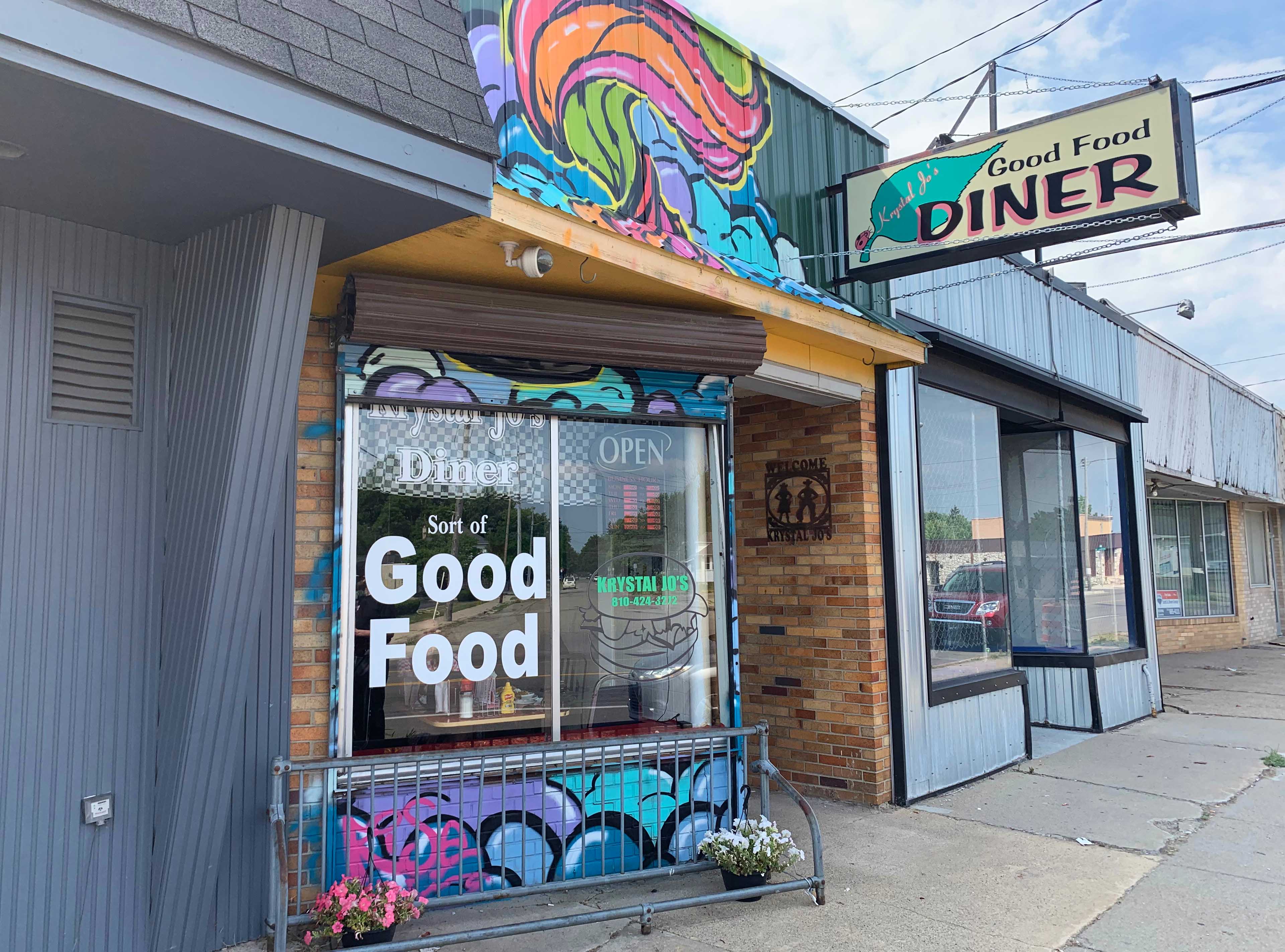
Any respectable upper Midwest town holds plenty of diners, and Krystal Jo's tiny south side space has operated as such since 1946, and under the K-Jo's banner for the last 12 years. Owner Tony Tucker and his staff prep everything each morning, which is noticeable in the stick-to-your ribs steak skillet with shaved ribeye, sautéed peppers and onions, potatoes, cheddar cheese, and an excellent, thick Southern gravy. In the Tony Wrap, Tucker tosses fried chicken with a housemade hot sauce, then wraps it with crunchy onion straws, banana peppers, tomato, lettuce, and cooling ranch.
But Tucker says K-Jo's is also about a "hometown feel" and community involvement. Several years ago, he gave away a few bicycles to neighborhood kids, and that quickly grew into a nonprofit that gathered 1,200 bikes for Flint kids last year. That, Tucker says, is more popular than his plates.
"No one calls me 'The Diner Guy' or 'The Cheeseburger Man'—they call me 'The Bike Guy,'" he says. "The reality of it is, it's our sense of community that put us on the map. I wish could say it’s because I'm selling awesome $30 burgers, but that's not it."

At the Soggy Bottom Bar, a dive in downtown Flint, there's bar food, craft cocktails, an excellent dry cider from the neighboring Flint City Hard Cider, and a solid local beer selection—but even beyond the menu, Soggy Bottom is the type of well-loved local spot that draws in people of all stripes for everything from pregaming for a Flint City Bucks soccer game to a Tuesday jazz night.
But despite all the great things happening in Flint, its structural problems remain, making it hard to retain talent. For his part, Vu says he may not stay in Flint forever, but in 2014, when he had to decide whether he should open a business in his hometown or join a mountain climbing crew in the Andes, he chose Flint because he "saw a once-in-a-lifetime-opportunity to be part of a rebirth of the city."
"It was about choosing my town, my city, and my identity," Vu says. "That's what keeps me coming back. It boils down to a pure love for this community."
from VICE https://ift.tt/2ZoGq8p
via cheap web hosting
No comments:
Post a Comment